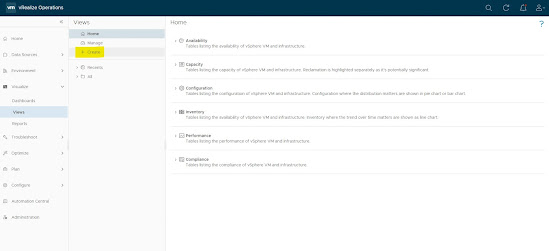VMware Data Service Manager: Simplifying Database Management in the Cloud Era
In today's fast-evolving cloud landscape, businesses are increasingly adopting cloud-native solutions to enhance scalability, flexibility, and performance. VMware, a global leader in virtualization and cloud infrastructure, has introduced VMware Data Service Manager (DSM), a groundbreaking platform designed to streamline the management of databases in hybrid cloud environments. This tool aims to simplify the deployment, operation, and scaling of databases, allowing organizations to focus on innovation rather than managing infrastructure.
What is VMware Data Service Manager?
VMware Data Service Manager is an integrated platform that
allows users to manage both stateful and stateless applications in a consistent
manner. It helps in the provisioning, managing, scaling, and securing of
databases across hybrid and multi-cloud environments. DSM provides a unified
control plane for database management, enabling developers and IT operations
teams to optimize their database infrastructure seamlessly.
Designed with the growing needs of modern cloud-native
applications in mind, VMware DSM supports a variety of database types including
relational databases (such as MySQL, PostgreSQL, and SQL Server), NoSQL
databases, and more specialized data stores. It is built to handle the demands
of modern workloads, such as high availability, disaster recovery, and
automated backups, all within a flexible and scalable environment.
Key Features of VMware Data Service Manager
- Unified
Database Management: VMware DSM provides a centralized control plane
for managing databases across multiple clouds. Whether an organization
operates on VMware Cloud, public cloud platforms like AWS or Azure, or
on-premises infrastructure, DSM enables seamless and unified database
management across all these environments.
- Automated
Provisioning and Scaling: The platform allows for automated
provisioning of databases, streamlining the deployment process.
Additionally, DSM offers dynamic scaling capabilities, automatically
adjusting resources based on workload demands. This ensures that the
infrastructure can grow or shrink as needed, providing optimal resource
utilization and reducing costs.
- Data
Protection and Security: Security is a top priority when dealing with
sensitive data. VMware DSM incorporates advanced security features such as
data encryption, role-based access control (RBAC), and network isolation
to safeguard databases. Additionally, automated backup and disaster
recovery mechanisms are built in to ensure data integrity and
availability.
- Support
for Modern DevOps Practices: As DevOps continues to revolutionize the
way applications are developed and deployed, DSM integrates with modern
DevOps tools and workflows. By supporting containerized databases and
Kubernetes, DSM makes it easier for teams to deploy databases as part of
the CI/CD pipeline, fostering agility and faster development cycles.
- Comprehensive
Monitoring and Insights: VMware DSM includes powerful monitoring
capabilities that provide real-time visibility into database performance.
Administrators can track metrics like CPU usage, memory consumption, and
I/O throughput, helping to identify bottlenecks and optimize performance.
Additionally, DSM provides comprehensive logs and alerts, allowing for
proactive troubleshooting.
Why VMware Data Service Manager Matters
- Cloud-Native
Transformation: With the rapid shift towards cloud-native
applications, organizations need to rethink their database management
strategies. VMware DSM helps businesses seamlessly transition to
cloud-native databases, providing the flexibility and scalability required
by modern workloads. This also means reduced overhead for IT teams, who
can focus more on application development rather than managing complex
database infrastructures.
- Hybrid
and Multi-Cloud Flexibility: Many organizations have embraced hybrid
cloud and multi-cloud strategies to avoid vendor lock-in and to take
advantage of the unique capabilities of different cloud providers. VMware
DSM supports a hybrid approach, ensuring that databases can be managed
consistently across multiple environments, whether on-premises, in VMware
Cloud, or in public clouds.
- Cost
Efficiency: By enabling dynamic resource scaling and automated
management, VMware DSM helps organizations optimize their cloud
infrastructure, potentially lowering operational costs. The pay-as-you-go
model for cloud resources ensures that businesses only pay for what they
use, avoiding over-provisioning and reducing wasted resources.
- Enhanced
Developer Experience: Developers benefit from VMware DSM's integration
with modern development practices, such as containerization and
Kubernetes. This simplifies the database lifecycle, enabling developers to
manage databases as easily as they manage code, accelerating the time to
market for new features and applications.
Conclusion
VMware Data Service Manager is a powerful tool for
organizations looking to modernize their database management strategy in the
cloud. By offering a unified management interface, automation, and robust
security features, it simplifies the complexities of managing databases in
hybrid and multi-cloud environments. For companies aiming to optimize their
cloud infrastructure and embrace a more agile, cloud-native approach to
application development, VMware DSM is an invaluable asset in their toolkit.
As cloud adoption continues to grow, platforms like VMware
Data Service Manager will play a key role in enabling organizations to manage
their data efficiently, securely, and at scale, driving both innovation and
operational excellence.


Commenti
Posta un commento